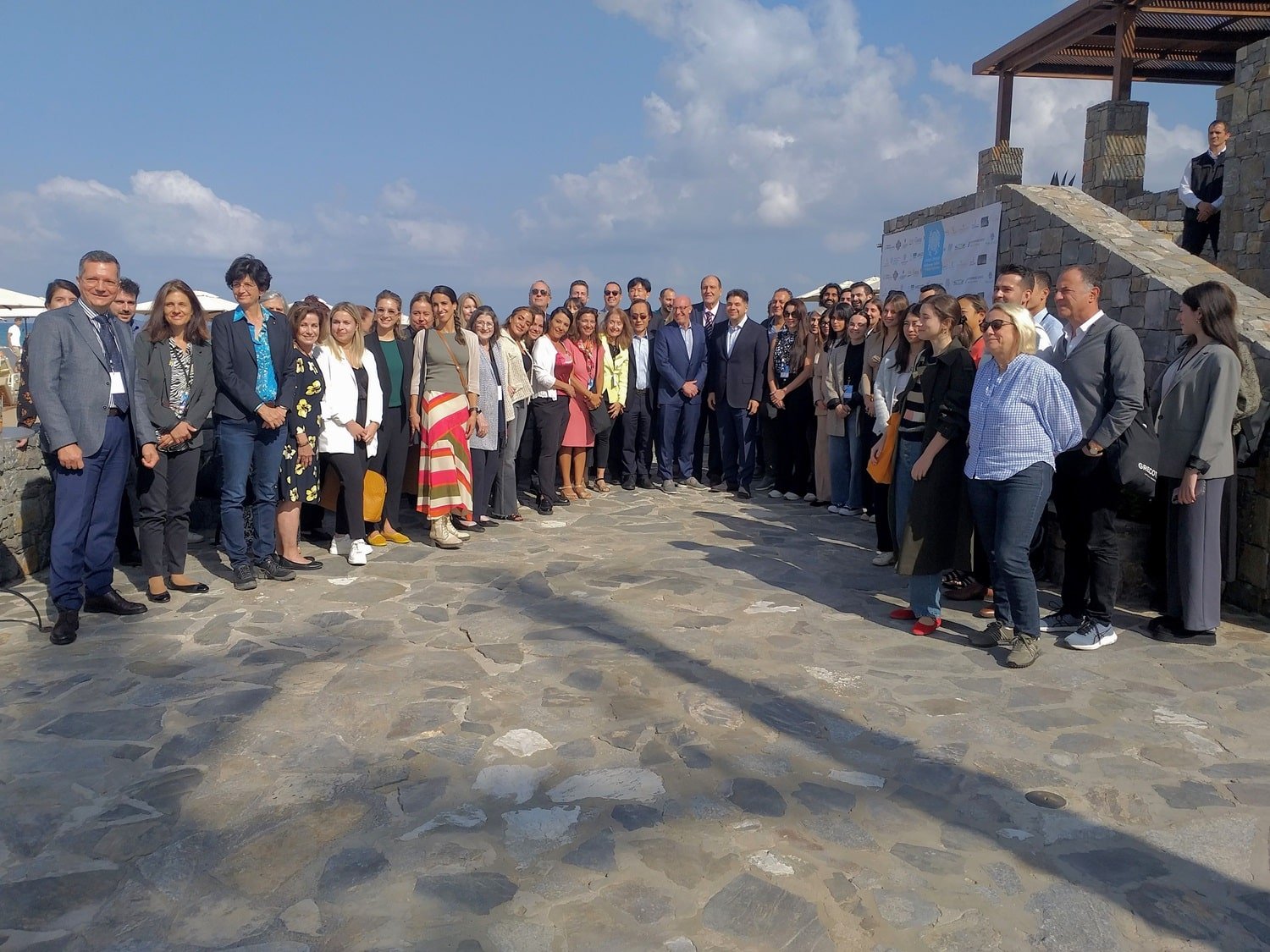
Focused on the Mediterranean Tradition and its Modern Applications, the 3rd Cretan Lifestyle Conference gathered more than 75 researchers, students, and professionals from 12 countries and six continents to examine the health benefits of a traditional Greek diet and lifestyle.
From October 29 to November 2, scientific presentations at Amirandes Resort, a Grecotel property near Heraklion, Crete, were complemented by conversations, meals, and outings. The conference was co-organized by the Hellenic Center for Excellence in Health & Wellness and Grecotel under the aegis of the Region of Crete and the Hellenic Republic’s Ministries of Tourism and Health.
The 3rd edition of this conference opened with a keynote address by Dr. Antonia Trichopoulou, “the mother of the Mediterranean diet” and one of the creators of the first Mediterranean diet pyramid.
Lamenting the reduced adherence to this traditional diet in Greece since 1950, she described a new effort to transfer beneficial aspects of the Med diet to other parts of the world in adaptations that fit local cultures and reflect food availability and environmental sustainability: a Planeterranean or Planetary diet.
Cretan Lifestyle and the “green” version of the Med diet
Other distinguished professors shared insights about a healthy “green” version of the Med diet and reasons for the beneficial effects of a traditional Greek diet on the biology of aging. Conference organizers Dr. Stefanos Kales of Harvard University and Mr. Demetrios Kalaitzidakis of Grecotel then introduced Mr. Pavlos Antonakis (age 89) as “a living example of healthy aging, the Cretan way” who still does his own gardening in a Cretan village.
The second day’s keynote speech was presented by Dr. Frank Hu of Harvard T.H. Chan School of Public Health, who discussed evidence that olive oil is an extremely important component of the Mediterranean diet and lifestyle that contributes a great deal to their health benefits. He also pointed out that olive oil is unique among plant-derived oils in its anti-inflammatory polyphenol content, eco-friendliness, and cultural and historical significance.

Chef and author Diane Kochilas then shared her personal experiences from the Greek island of Ikaria, which has become famous as one of the world’s “Blue Zones” where many people live unusually long, healthy lives.
Other presentations offered evidence that high adherence to the traditional Mediterranean diet correlates with a much lower incidence of cardiovascular disease, type 2 diabetes, and hypertension, although lower adherence to this diet in Greece today makes it necessary to better educate the population regarding its benefits.
US Ambassador describes his own journey to a trimmer, fitter Greek lifestyle
The final morning of the conference began with an impromptu address by Mr. George J. Tsunis, U.S. Ambassador to the Hellenic Republic, who described his own journey to a trimmer, fitter Greek lifestyle and urged conference participants to help others become healthier.
The last few hours of the scientific program contained updates on what recent research shows about the value of the Mediterranean diet in comparison to other diets, additional significant points about the Mediterranean lifestyle, and the results of the Spanish CORDIOPREV study.
Evidence from more than 12 million people associated greater adherence to the Mediterranean diet with a reduction of risk of chronic disease and overall mortality. However, it has also become clear that benefits come from more than food: the whole traditional Mediterranean lifestyle pattern, including exercise, socializing, and adequate sleep, appears to contribute to health and longevity.
Participants also heard brief presentations on the top five papers in the conference’s 3rd annual Young Professionals’/Investigators’ Competition. Maria del Carmen Aznar de la Riera, a PhD student at the Autonomous University of Madrid, was declared the winner.
Before the conference began, a parallel event spotlighted the five young finalists in an Agro-Food Startup Company Competition. Young entrepreneurs briefly presented their companies to a panel of judges, with Teapsule winning first prize for compostable organic Cretan herbal tea capsules that work in Nespresso machines.

Every afternoon, conference participants explored the Cretan lifestyle, culture, and history with a bus excursion to a different part of Crete, which has been awarded the designation of European Region of Gastronomy for 2026.
With Heraklion also one of UNESCO’s Creative Cities of Gastronomy, the first field trip featured a tour and tasting at Haralambakis Winery in the Heraklion area, followed by guided tours of the archaeological site of Knossos and the unique collection of the Heraklion Archaeological Museum.
Awards presented at the Cretan Lifestyle Conference
At the inaugural dinner and the gala dinner, five awards were presented by the Hellenic Center for Excellence in Health & Wellness:
· the Lifetime Award in Tourism to Mr. Michalis Vlatakis, President of Travel Agents of Crete and Vice President of the Panhellenic Federation of Tourist Enterprises
· the Scientific Innovation & Achievement Award to Professor Nektarios Tavernarakis, Chairman of the Board of Directors at the Foundation for Research and Technology-Hellas (FORTH), and Vice President of the European Research Council
· the Ancel Keys Award to Mr. Pavlos Antonakis and Mrs. Irene Antonakis (ages 89 and 78), examples of healthy aging based on Cretan traditions
· the Lifetime Achievement Award in Public Health to Professor Frank Hu, MD, PhD, Chair of the Department of Nutrition at Harvard T.H. Chan School of Public Health
· the Lifetime Award in Philanthropy to His Beatitude Theodoros II, Pope and Patriarch of Alexandria and All Africa
